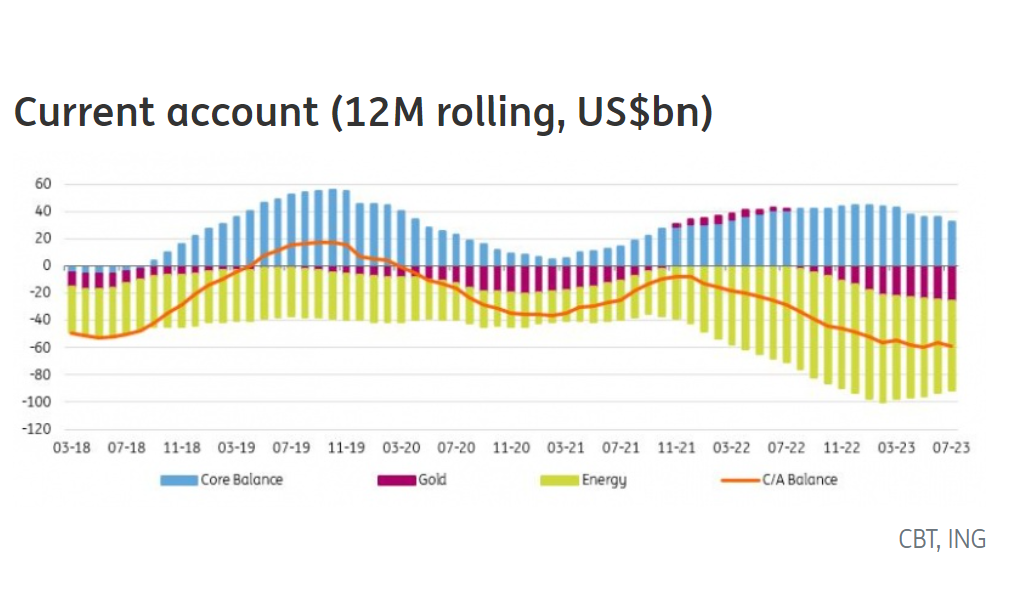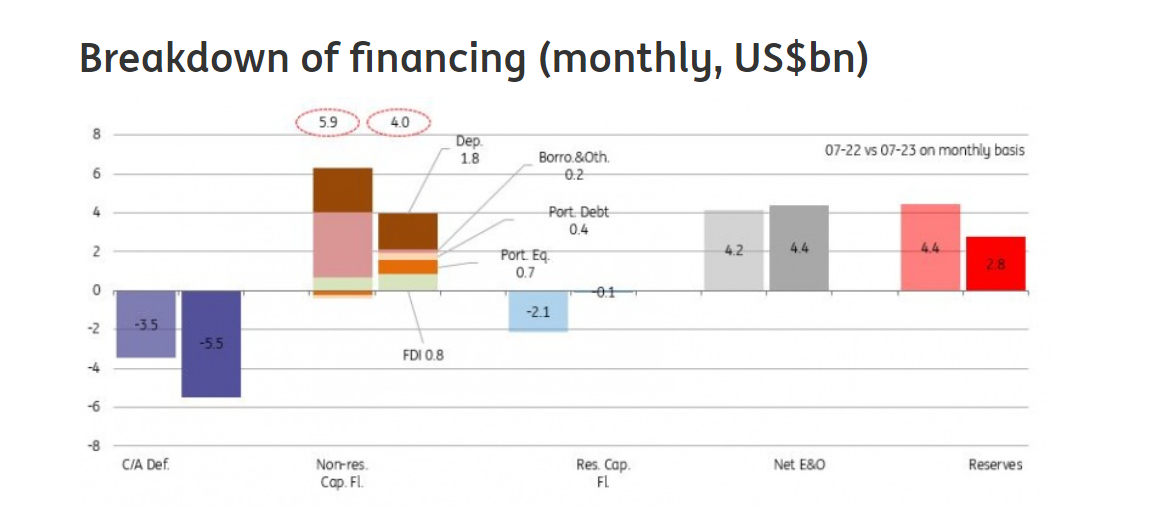After some relief in June with a surplus of $0.7 billion, Turkey’s current account dove into deficit again in July with $-5.5 billion – much higher than both the consensus and our call of $4.5 billion. The 12M rolling deficit widened to $-58.5 billion, which translates to around 5.8% of GDP.
A quick glance at the data points towards core trade and gold balance being the major drivers in the deterioration of gold deficit, despite lower energy bills due to a recent drop in oil prices. Services income, on the other hand, showed a slight decline on the back of moderating transport revenues, while (net) tourism revenues maintained strength and reached another peak on an annual basis of $39.6 billion.

The capital account saw net identified inflows at $3.8 billion. Net errors and omissions stood at $4.4 billion and reached $12.6 billion in the two months following elections, reversing outflows from two months prior to the elections. With the monthly current account deficit and large inflows via net errors and omissions, official reserves recorded a $2.8 billion increase. However, given the weakness in the flows, reserves financed more than half of the current account deficit in the first seven months of this year.
Equity Strategy: The state of Turkish markets amidst policy normalization
In the breakdown, resident flows were quite negligible. For non-residents, $4.0 billion inflows were attributable to i) $0.7 billion gross FDI, ii) foreign investors’ $0.7 billion equity purchases, iii) $1.8 billion deposits placed by non-residents to the local banking system, iv) US$0.9bn increase in trade credits, and v) US$0.4bn eurobond issuance by banks. Regarding rollover rates, we saw a moderation in both banks and corporates to 58% and 73% in July (vs 85% and 108% respectively on a 12M rolling basis).
From January to July this year, domestic demand pushed imports upwards and the deterioration of the gold trade balance weighed on the current account – despite a narrowing energy deficit and the supportive impact of a decline in both energy and commodity prices, alongside continued strength in tourism revenues. Since the elections, there has also been a gradual tightening in financial conditions.
This backdrop – with a visible deceleration in growth – should lead to an improvement in the current account moving forward. However, the outlook still remains challenging as the decline in global leading activity indicators increase the risk of a slowdown in exports. For the capital account, total flows have improved since the elections, with strong net errors and omissions. An ongoing pivot to a more conventional policy stance will likely be crucial for recovery in investor confidence and identified flows.
Excerpt from ING research note
Follow our English language YouTube videos @ REAL TURKEY: https://www.youtube.com/channel/UCKpFJB4GFiNkhmpVZQ_d9Rg
And content at Twitter: @AtillaEng
Facebook: https://www.facebook.com/realturkeychannel
